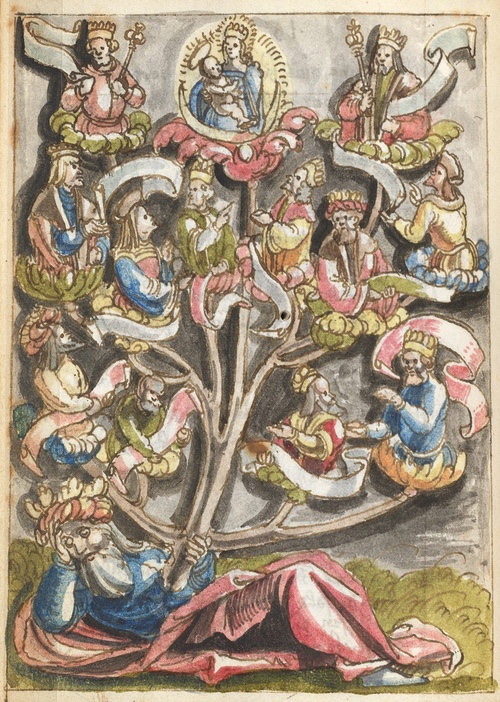Dendranthropology
Articles : Woodsman, Spare That Ancestor!

When I came upon the word dendranthopology[sic] in The Word Museum and saw it defined as "Study based on the theory that man had sprung from trees," I laughed aloud. Surely there was some place I could use this word in Treeborne, and indeed, you'll find it there in a conversation that includes people laughing. Seemed appropriate.
I've lived with Treeborne for several years and multiple editing passes, and eventually became curious about the word. Who studies this theory? Is there a Professor of Dendranthropology who gives talks in a drafty stone lecture hall somewhere? And who believes man sprang from trees (I mean, except to catch rabbits or something)? Are these people still around? Do they have get-togethers? In bars? In the forest? Do they hold requiems in lumberyards? Anyway, I did what any practicing Dendranthropologist would do (probably): I went rooting around on the web looking for answers.
This Gets Weird
The first thing I learned was that The Word Museum had speld it wronge. It should have another "r" in it: dendranthropology.
The next thing I learned was that the various dictionaries that had heard of the word didn't give much background on it. The Century Dictionary, in the 1914 edition that Google scanned, hints that it is humorous. Well, it made me laugh, so I guess so.
Then I stumbled upon this passage from The Child and Childhood in Folk-Thought, by Alexander F. Chamberlain:
"The study of dendanthropology and human florigeny would lead us wide afield. The ancient Semitic peoples of Asia Minor had their "Tree of Life," which later religions have spiritualized, and more than one race has ascribed its origin to trees. The Carib Indians believed that mankind--woman especially--were first created from two trees (509. 109). According to a myth of the Siouan Indians, the first two human beings stood rooted as trees in the ground for many ages, until a great snake gnawed at the roots, so that they got loose and became the first Indians. In the old Norse cosmogony, two human beings--man and woman--were created from two trees--ash and elm--that stood on the sea-shore; while Tacitus states that the holy grove of the Semnones was held to be the cradle of the nation, and in Saxony, men are said to have grown from trees. The Maya Indians called themselves "sons of the trees" (509. 180, 264)."
As I wasn't able to make sense of the numbered references, I don't know if this is scholarly work or a deep well of woo-woo. But it seems we've found a person who studies "dendanthropology"[sic, but differently], and perhaps even a professor with a drafty lecture hall. "Human florigeny" also sounds, um, intriguing, but let's finish with this one word before we pick up any other hitchhikers.
Farther back
A few circular search trails on, I stumbled upon a footnote in H.L. Mencken's The American Language where he discusses how Robert Southey, Britain's Poet Laureate in the early 1800's, carried on indignantly about American barbarisms (like to advocate) but himself used words as unlikely as cacodemonize, kittenship, frizzgig, critikin, and our current favorite, dendanthropology [sic... oh whatever, spell it how you want]. So I went looking for Southey's book.
The book is called The doctor, &c, and begins with two friends arguing over what to name a horse, and then covers... to be honest, I couldn't really follow it. But I did find a strange use of our curious word on page 580:
"Sometimes he pressed the lame and halt into his service, but it was with a clear perception of their defects, and he placed them always in positions where they were efficient for the service required for them, and where more valid ones would not have been more available. He formed, therefore, no system of dendranthropology, nor attempted any classification in it; there were not facts enough whereon to found one."
I hunted around a little to see what they named the horse, but it escaped me. I might try to use kittenship though.
To Oxford with our word
We turn at last to our arbiter of all word-related disputes, the OED, where we learn that dendranthropology originates from R. Southey's Doctor, where it is apparently an isolated use. Doubtful they'll change the reference when Treeborne comes out, but you never know.
Thanks for riding along, and say hi to grandpa when you're out raking leaves...